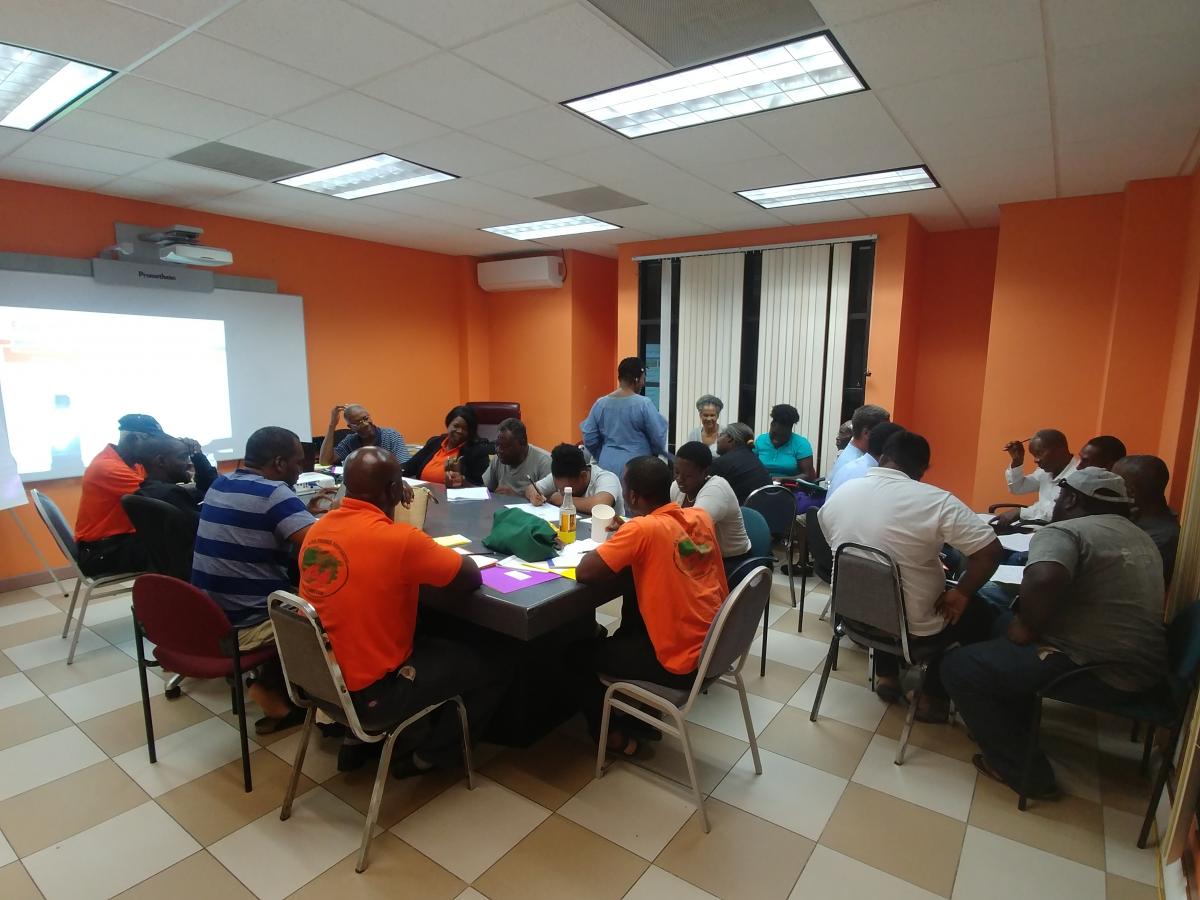Despite several efforts producer groups need to reinforce their skills and their link to markets.

St. John’s, December 11th, 2017 (IICA). Under the Flagship Project Competitiveness and sustainability of agricultural chains for food security and economic development, the Inter-American Institute for Cooperation on Agriculture (IICA) has recognized there is a need to strengthen the capacity of producer groups in governance and management matters.
Collective marketing efforts and capacity strengthening have allowed producer groups to better penetrate markets thanks to the Intra-ACP Agriculture Policy Programme (APP) Caribbean Action, with funding by the European Union under the recently concluded 10th European Development Fund (EDF). However, the need to further this work and greater link producer groups to markets remains.
In April 2017, a workshop was conducted with national specialists in the Organisation of Eastern Caribbean States (OECS) and Trinidad and Tobago to strengthen their capacity to provide additional governance support to producer groups. The workshop sought to identify a clear plan of action to strengthen the capacity of the producer groups and better integrate them in regional value chains.
Later on in November 2017, with the use of a capacity assessment tool, a number of management issues were identified among the groups. To this end, IICA organized a two-day workshop for strengthening resolve in areas such as: commitment, communication, collaboration and conflict resolution for four producer groups. The objective was to strengthen governance skills of producer groups to renew commitment and 3C’s refresher: communication, collaboration and conflict resolution in the development of their members and communities.
This workshop was interactive and allowed the facilitators to capture the attention of the participants through face-to-face discussions and classroom-type practical activities, which helped to enforce their commitment to their respective producer groups. At the end of the session, participants were able to learn more effective communication skills.
Participants were able to identify their personality types and communication tools that exist within their groups. They also completed a commitment statement of executive and ordinary members.
This workshop was formulated under an assessment that was conducted using the Organizational Capacity Assessment Tool (OCAT). This tool allows evaluating and providing critical insight into avenues for improvement in management, business and technical operation, and governance of civil society organizations (CSOs). It is intended that this tool is used as a resource by producer groups, NGOs and/or their development partners to systematically work on group/organization governance and the socio-business and associative processes that are impacted by it.
More information: craig.thomas@iica.int











